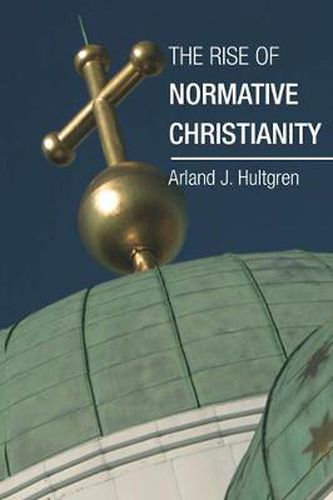Readings Newsletter
Become a Readings Member to make your shopping experience even easier.
Sign in or sign up for free!
You’re not far away from qualifying for FREE standard shipping within Australia
You’ve qualified for FREE standard shipping within Australia
The cart is loading…






More than fifty years ago, Walter Bauer’s ‘Orthodoxy and Heresy in Earliest Christianity’ undercut the traditional views on the making of orthodox Christianity by arguing that in several geographic areas, heresy preceded orthodoxy. Subsequently, the ancient documents discovered at Nag Hammadi proved that early Christianity was tremendously diverse. These influences have given rise to the notion that the various gnostic interpretations are mere alternatives to more traditional interpretations of Jesus and his significance. Using a focused but broad definition of normative Christianity, Hultgren contends that such a tradition originated at the very beginnings of the Christian movements, developed, and came to dominate as the most adequate expression of Jesus’ legacy. Normative Christianity - a stream as wide as the New Testament canon - forged a coherence between confession of faith and community ethos that could endure and was the basis for later orthodoxy.
$9.00 standard shipping within Australia
FREE standard shipping within Australia for orders over $100.00
Express & International shipping calculated at checkout
More than fifty years ago, Walter Bauer’s ‘Orthodoxy and Heresy in Earliest Christianity’ undercut the traditional views on the making of orthodox Christianity by arguing that in several geographic areas, heresy preceded orthodoxy. Subsequently, the ancient documents discovered at Nag Hammadi proved that early Christianity was tremendously diverse. These influences have given rise to the notion that the various gnostic interpretations are mere alternatives to more traditional interpretations of Jesus and his significance. Using a focused but broad definition of normative Christianity, Hultgren contends that such a tradition originated at the very beginnings of the Christian movements, developed, and came to dominate as the most adequate expression of Jesus’ legacy. Normative Christianity - a stream as wide as the New Testament canon - forged a coherence between confession of faith and community ethos that could endure and was the basis for later orthodoxy.